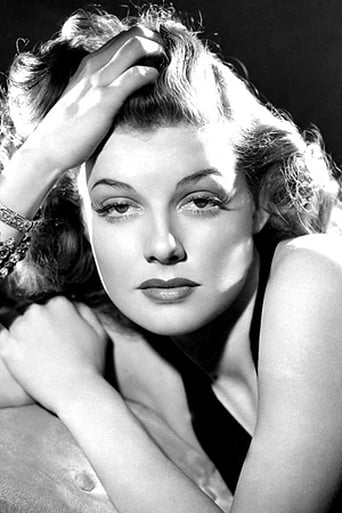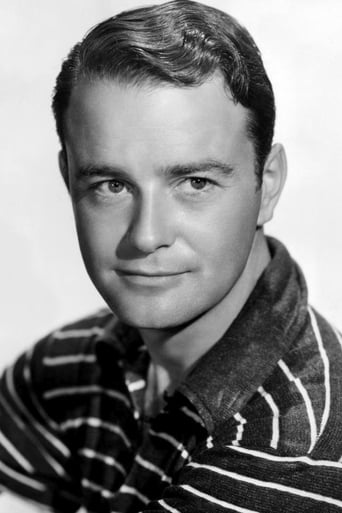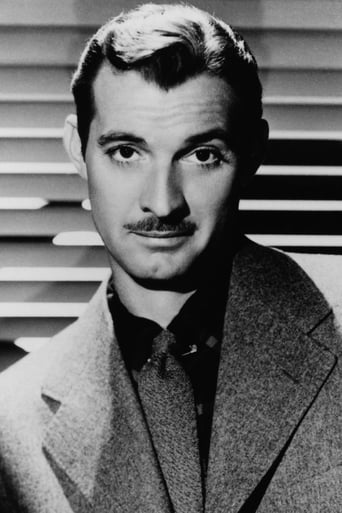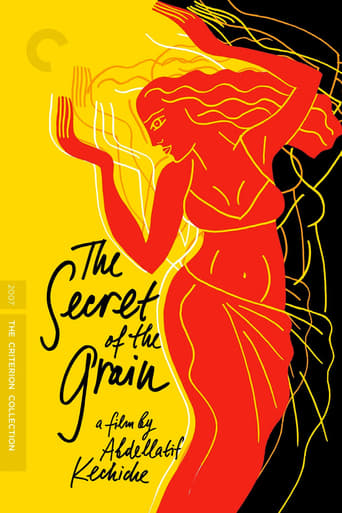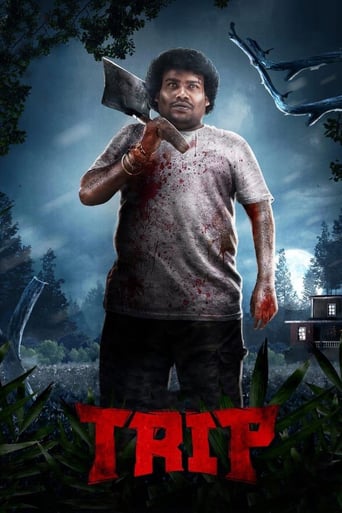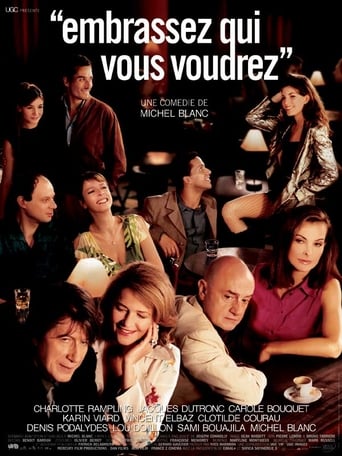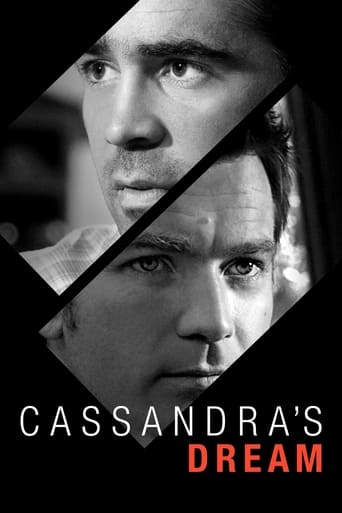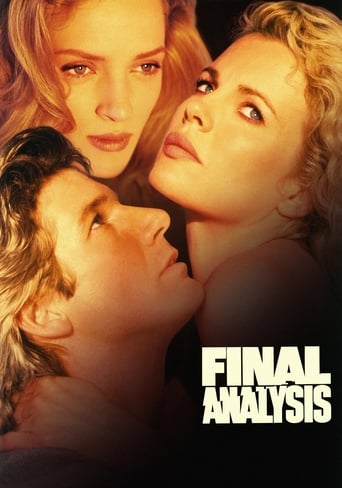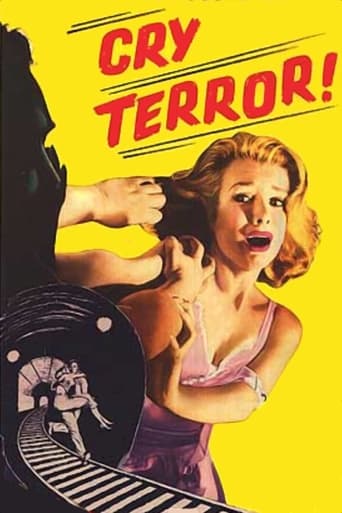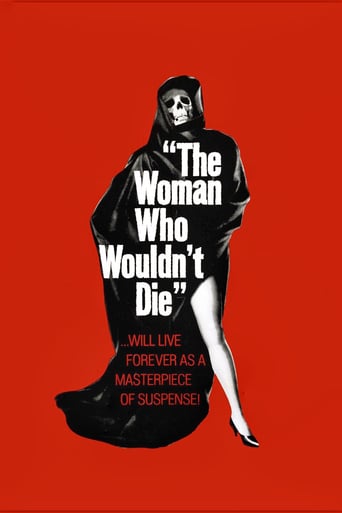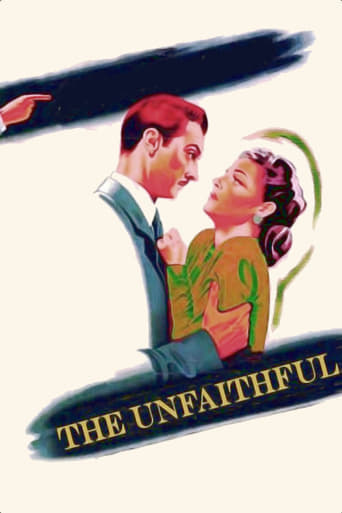
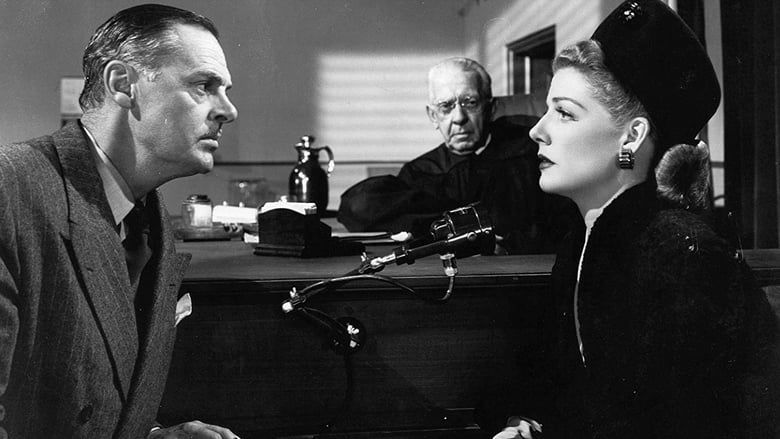
The Unfaithful (1947)
Christine Hunter kills an intruder and tells her husband and lawyer that it was an act of self-defense. It's later revealed that he was actually her lover and she had posed for an incriminating statue he created.
Watch Trailer
Cast
Similar titles
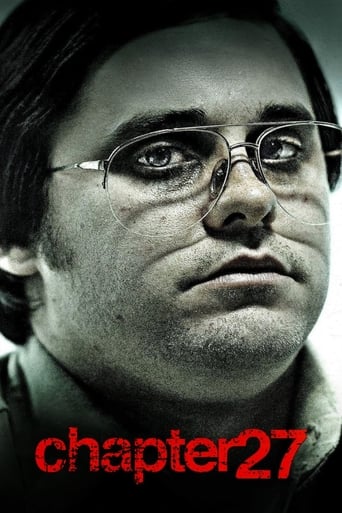
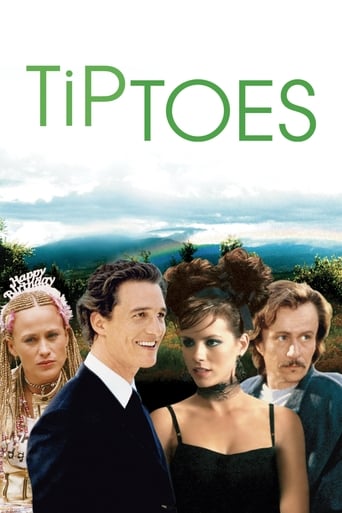
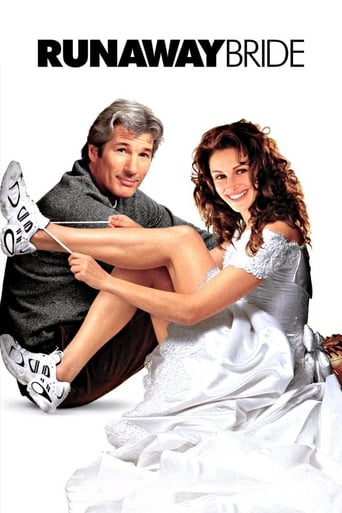
Reviews
Wonderful Movie
It's entirely possible that sending the audience out feeling lousy was intentional
It's funny, it's tense, it features two great performances from two actors and the director expertly creates a web of odd tension where you actually don't know what is happening for the majority of the run time.
Excellent and certainly provocative... If nothing else, the film is a real conversation starter.
The opening narrative tells us that our story occurs in southern California, but that it may happen anywhere. From a street generously lined with palm trees, a late model auto pulls into the driveway of an attractive house in an upper middle class neighborhood. Thus begins the tale. Chris Hunter (Ann Sheridan) is excited because her husband Bob (Zachary Scott) is returning home from his latest business trip (of ten days). As it will come to pass, Bob and Chris have not been together much. They married only after knowing each other for a short time. Just two weeks later, he was shipped away to the Pacific for two years to fight the Japanese in World War II, not returning home until after the war (1945). So there is a hidden message here: loneliness.The night before Bob's arrival Chris is attacked by a man whom we do not see as she enters her house. After a difficult struggle she is able to reach for a knife and kill her assailant in obvious self-defense. The police are shortly on the scene of the crime. While the account appears to be one of an assault and self-defense issue, it is much more. The fact of the matter is that while Bob was away, the dutiful Chris succumbed to temptation: another man's advances. She tries to hide her adultery. The problem is that the man whom she killed (Mike Tanner) was the one with whom she had the affair. No one would be the wiser except that a sleazy second-hand art dealer, Martin Barrow (Steven Geray) – he of the strange accent for a guy named Barrow – happens to own a bust, a sculptured head. Not only is it a likeness of Chris Hunter, but it has been "signed" by M. Tanner, the name of the dead man! Over time, Chris' lies will get her into trouble with both the law and her husband. Her life will implode.Defending Chris is adviser-lawyer and family friend Larry Hannaford (Lew Ayres), steadfast to the end. But when everything comes out into the open, there will be a sensational shattering public trial. Lew Ayres is more than adequate in court, and he later has the soothing words for Bob and Chris when they need them. So does gossipy Paula (Eve Arden), who turns decent at the end. Jerome Conway is the prosecuting attorney, a pit bull, in court. By the way, if he looks familiar as a court lawyer, he had the same role (district attorney) during the same year (1947) in "Miracle on 34th Street." Los Angeles locales are used to good advantage. But although the leads (Ann Sheridan, Lew Ayres, Zachary Scott) are fine, there are two weaknesses: Roger (Douglas Kennedy), a bit of a heavy, wanders in and out very early on, and we never see him again. Also the movie length is at ten or fifteen minutes too long. Nevertheless it is entertaining, satisfying, and recommended.
I just saw this on TCM and was so surprised at how gripping it was. Loosely based on Somerset Maugham's "The Letter" that was a major early talkie hit for Jeanne Eagels at Paramount and then remade into a the William Wyler-Bette Davis-Warner Brothers classic of 1940, this version pulls you in and gives Ann Sheridan one of her finest roles. Lew Ayres, Zachary Scott, Eve Arden and Marta Miltrovich are all outstanding as well. Top notch Jerry Wald production includes excellent Max Steiner score, superb Ernest Haller cinematography, and a very good script. Outstanding direction by Vincent Sherman allows Sheridan to shine in her central role as a woman who kills a supposed stranger in self-defense and then watches her life implode around her. The ending is the only letdown. Definitely a must for fans of the "Oomph Girl" at her Warner Brothers peak.
This is not a remake of "The Letter," rather this film and "The Letter" are based on the same source, a novel by W. Somerset Maugham. Strangely, Maugham is not given credit. Since he was still alive at the time, one wonders why he didn't object. Since "The Letter," there have been other films using the same theme but not quite as obviously as "The Unfaithful," though the setting and other parts have been changed to update the story. The delightful Ann Sheridan, who never received her due recognition as an actress, plays the bored housewife who has a fling while her new husband is away at war. Like so many other beauties, Marilyn Monroe comes to mind, Sheridan was promoted as a sex kitten, The "Oomph" Girl, and her true talents were never appreciated by the Hollywood establishment. Though Sheridan is fine, three supporting players steal the show. The magnificent Lew Ayres shines as the attorney friend who tries to put the pieces together hoping to exonerate Chris Hunter (Sheridan) from suspected murder. The more he searches the less the puzzle pieces fit. Ayres received a bum rap by Hollywood big wigs when he exercised his First Amendment rights during World War II to express his pacifist views. This movie represents his efforts to be re-accepted.Zachary Scott plays against type as the husband who is caught in a murder investigation he doesn't understand. As the story unwinds, he learns more about his wife than he wants to know or to accept. When Bob Hunter (Scott) appears on the scene having been away on business, the viewer automatically thinks he is in someway involved in the killing since Scott usually played the bad guy. This film shows that Scott was a more versatile actor when given an opportunity.Then there's the elegant Eve Arden as family friend and relative, Paula. Arden has some of the best lines in the movie and does she know how to deliver them! She is catty, coy, and funny when delivering just one well-written line of dialog. When her role turns more serious toward the end of the flick, she knows how to handle that too with élan.The film is worthwhile but there are a few weaknesses. One is the introduction of characters that just wander in and then disappear without rhyme or reason. For example, at a drunken party, Paula's ex, Roger, played by Douglas Kennedy, disrupts the proceedings and has to be led away by Chris and Larry Hannaford (Lew Ayres). After such a grand spectacle, Roger is never seen or mentioned again in the movie. The viewer keeps waiting for his return thinking that just maybe he had something to do with the murder.Another weakness is running time. This film is way too long. It would have played much better in a 60+ time slot. As is, there is too much dialog. So there are long boring talky parts included to stretch the film to an almost two hour format. "The Unfaithful" is more of an effective programmer than the flashy main feature it tries to be.
From the opening credits, underscored by Max Steiner's propulsive, unrelenting theme, this is a powerful film. Although loosely based on "The Letter," it is really not about sexual hypocrisy, but rather deals with the price of loneliness that World War II exacted on women at the home front. That price would of course also affect the returning soldiers, spouses of those women. At one point a character refers to the adulterous wife's "debt to society"--certainly not the sort of comment that would be likely to turn up in a film today--but the movie also takes pains to present the wife as a basically decent and honest person.Other films of the time that dealt with variations on that theme are "Till the End of Time" and "The Best Years of Our Lives." The discontents of the returning soldier have been depicted for millennia, as attested by the "welcome" that Agamemnon receives on returning home from the Trojan War. While the narrator at the movie's start accurately says that the story could take place anywhere, post-war Los Angeles is very nicely evoked, with quite a bit of location shooting. Among them: the atrium office building also featured in "DOA"; a hillside cable car, and a seedy hotel located opposite a high, menacing traffic embankment. There is also some nice blocking of the action in the suburban house, the emblem of the American Dream gone awry. (That Zachary Scott's character is a housing developer, when his own household is in disarray, has a paradoxical aspect.)Fine performances from all the principals, especially Ann Sheridan, who really shines. Eve Arden is also fine as an unexpected ally and, in contrast to her usual comic roles, has some strong dramatic moments.
